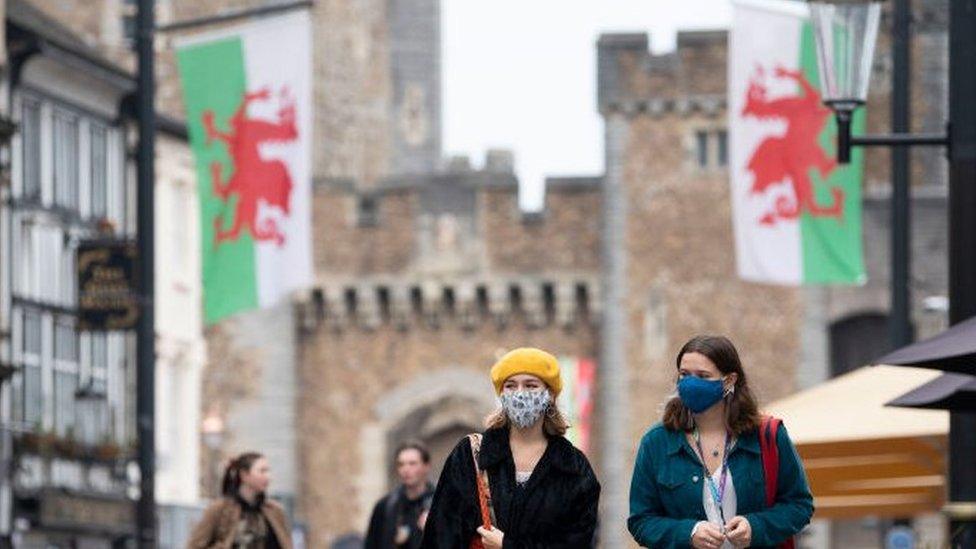Covid: Welsh firms 'left in the dark' over firebreak lockdown
- Published
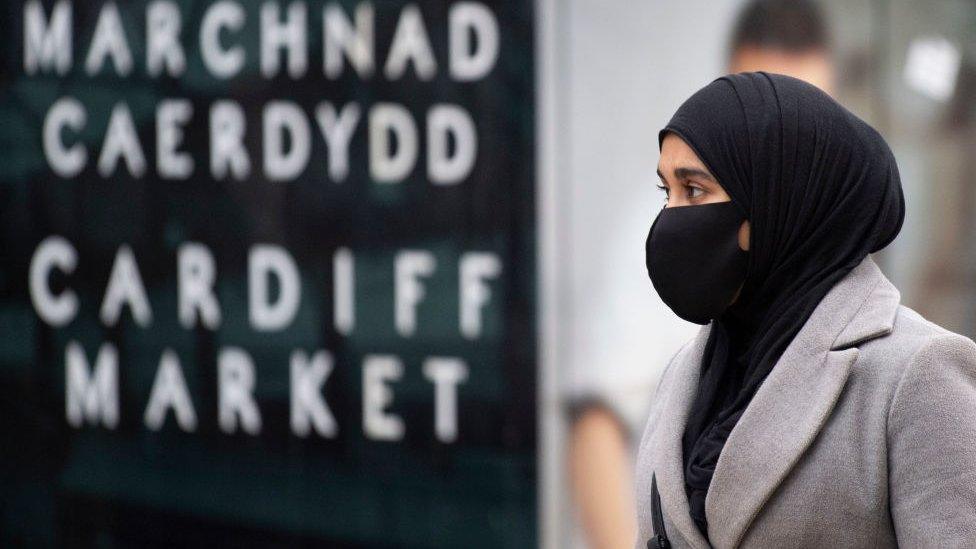
Non-essential business in Wales are being told to shut on Friday evening
Business leaders say companies in Wales have been given just hours to finalise plans for the firebreak lockdown.
All non-essential businesses will have to shut for two weeks from 18:00 BST on Friday.
But the list of the types of business being forced to close was only published on Thursday morning, external.
The Welsh Government said there was only a "small window" to act to slow the spread of coronavirus and there were "no easy options".
The Federation of Small Businesses (FSB) in Wales said the Welsh Government had left it "far too late in the day" to provide the detailed information.
"Waiting until the day before the lockdown comes into force does not give businesses the time that they need to prepare," said Ben Francis, the FSB Wales policy chair.
"This week should have been spent engaging with staff, contacting suppliers and informing customers, but many firms simply spent this time in the dark."
The federation said it was still fielding questions from its members in Wales who are worried about what they need to do to comply with the lockdown
"Welsh Government needs to take steps to be more responsive to the needs of the business community as we move through the coming weeks, or they risk making an already difficult period even worse for the business community," added Mr Francis.
The 46-page document setting out the legal rules behind the firebreak lists the type of businesses that must shut, those that can remain open but with limited access, and those that can continue to trade.
The FSB said many will be "incredibly relieved" to have the rules in black-and-white.

Open or closed?
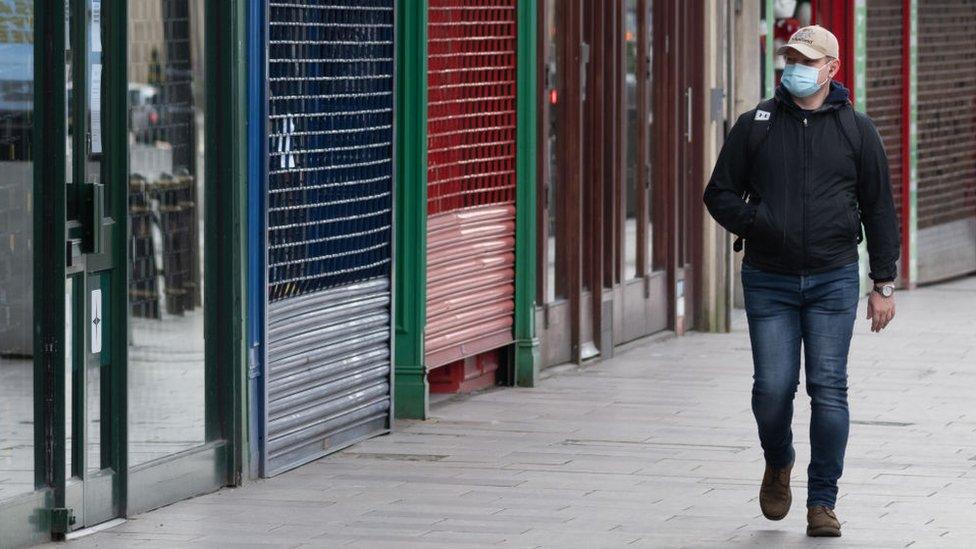
Premises told to shut include:
Homeware stores
Nail, beauty or tanning salons, tattoo and piercing parlours
Hair salons and barbers
Auction houses
Car dealers
Betting shops
Garden centres and nurseries
Shopping centres, arcades and markets
Cinemas
Theatres
Nightclubs and live music venues
Bingo halls and casinos
Leisure centres, swimming pools, gyms and spas
Museums and galleries
Funfairs, amusement and theme parks
Visitor attractions
Libraries
Estate or letting agents and show homes
Conference and event venues
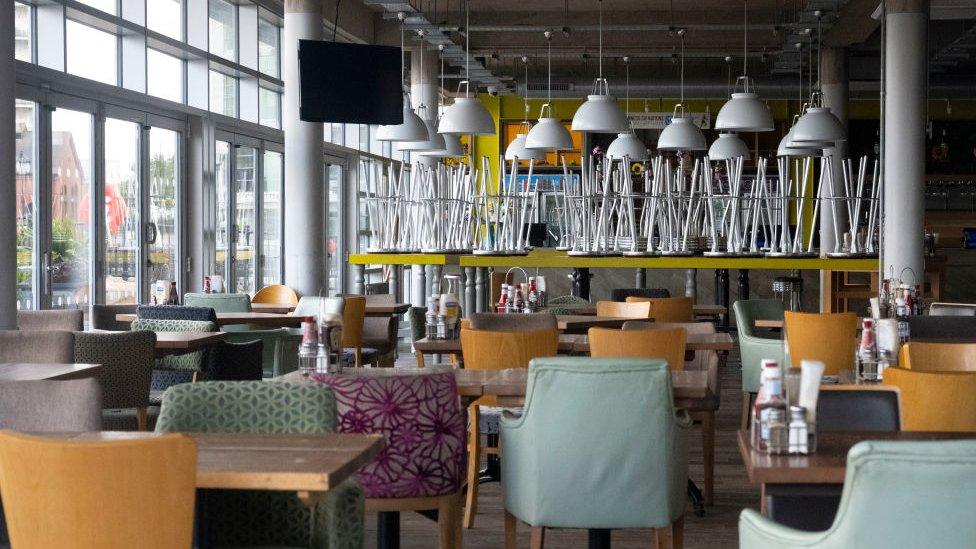
It is last orders again for pubs and bars
Pubs, restaurants and cafes must close for consumption on the premises but takeaway food sales are allowed.
Holiday and camping sites, along with hotels and B&Bs, holiday apartments and hostels must also shut - unless a resident cannot move elsewhere, or it is their permanent residence.
Places of worship can only open for wedding vows or funerals, and crematoriums for funerals.
Premises remaining open:
Food retailers, including food markets, supermarkets, convenience stores, and off-licences
Canteens in prisons or military use
Hospital and educational libraries
Newsagents
Building and hardware stores
Pharmacies
Bicycle shops
Petrol stations
Car repair and MoT services
Taxi or vehicle hire businesses
Banks, building societies and credit unions
Post offices
Laundrettes and dry cleaners
Dental services, opticians, audiology services, chiropody, chiropractors, osteopaths and other medical or health services
Veterinary surgeons and pet shops
Agricultural supplies
Livestock markets
Funeral directors

But there has also been some disquiet expressed by some sectors.
The Horticultural Trades Association, which represents businesses such as garden centres, said it was disappointed to learn those areas must shut.
"Back in May, Wales was the first UK administration to take the decision to reopen garden centres and we expected this to be a sign of support for the industry," said James Barnes, chair of the association.
"With no evidence to show why garden centres should be closed, we were crushed to see them included yet again as 'non-essential retail' for this Friday's lockdown."
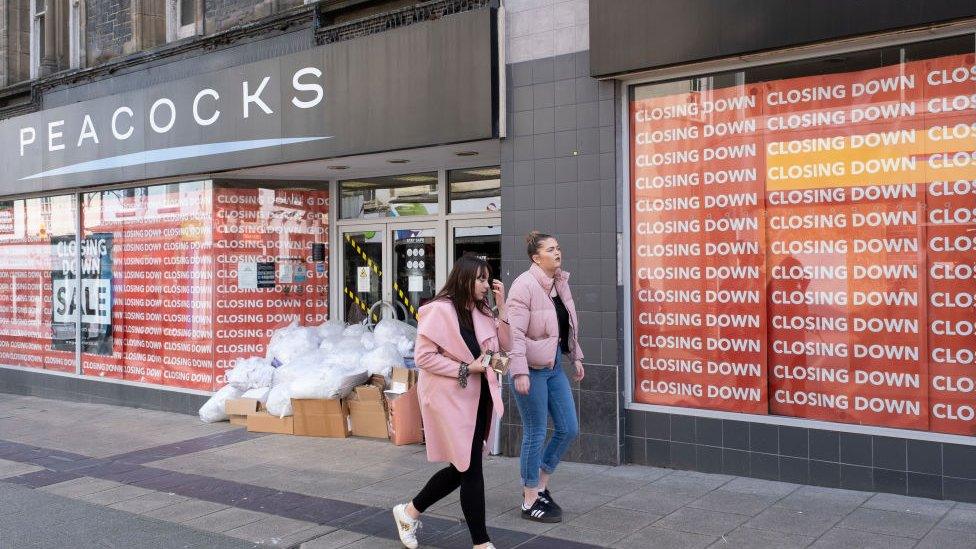
Bangor has witnessed a series of closures including clothing retailer Peacocks, which has gone into administration
Traders in Bangor plan on voicing their concerns over the Covid restrictions on Thursday by protesting outside their shops on what is Wales' longest high street.
Most of the city has been under a local lockdown since 10 October, following a spike in coronavirus cases.
"Local businesses have seen a huge drop in trade, they've stayed open while customers are being instructed to stay way," said Danielle Asquith, who works at a tattoo parlour.
"The message is simple, allow us to work to normal capacity or fund our temporary closure. It is simply not viable to continue the way things are."
Responding to business concerns across Wales, a Welsh Government official said: "There are no easy options and we recognise this firebreak period will have an impact on businesses at the end of what has been an incredibly difficult year for us all.
"We have doubled the third phase of the Economic Resilience Fund, making nearly £300 million available to support businesses. This phase will open next week and we will work hard to get money out to businesses as quickly as we can."
- Published19 October 2020
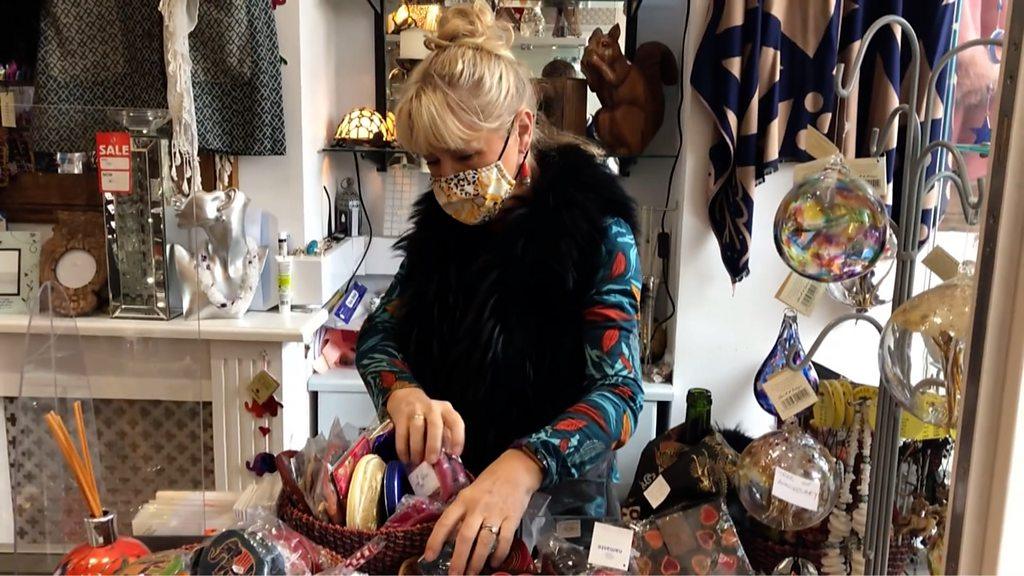
- Published20 October 2020
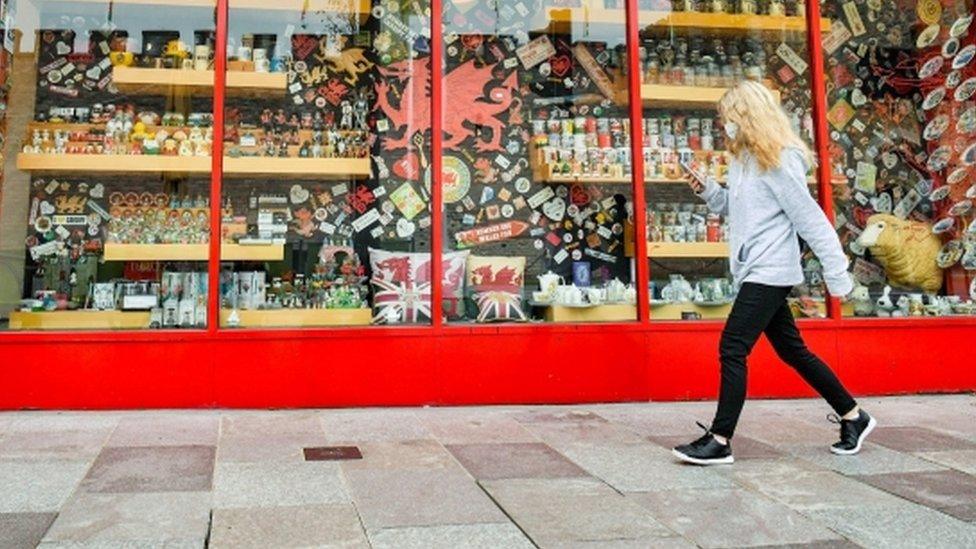
- Published19 October 2020

- Published18 October 2020
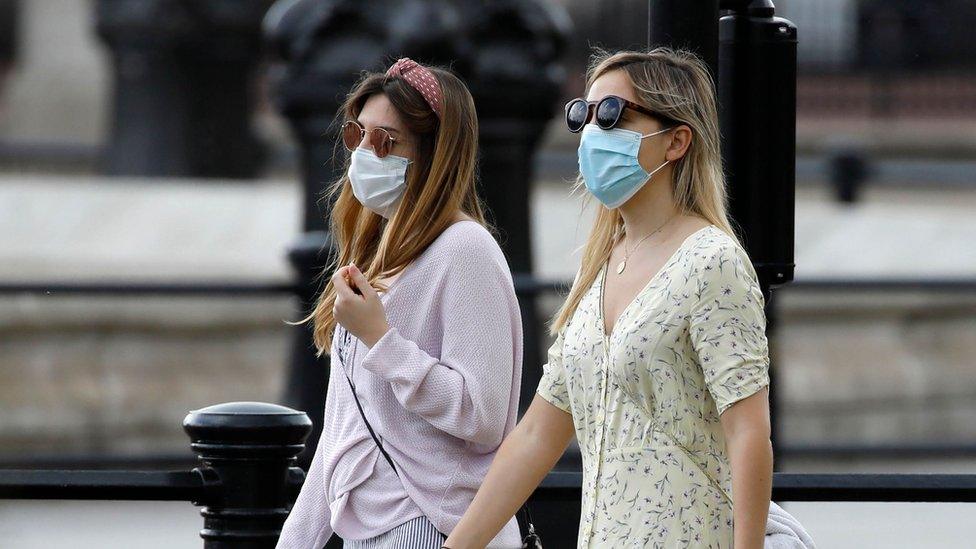
- Published20 October 2020
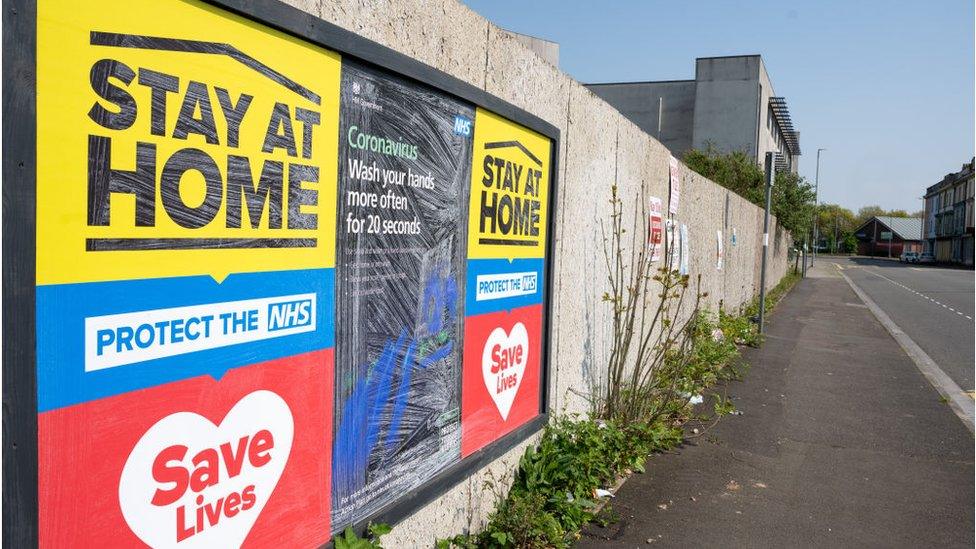
- Published19 October 2020
